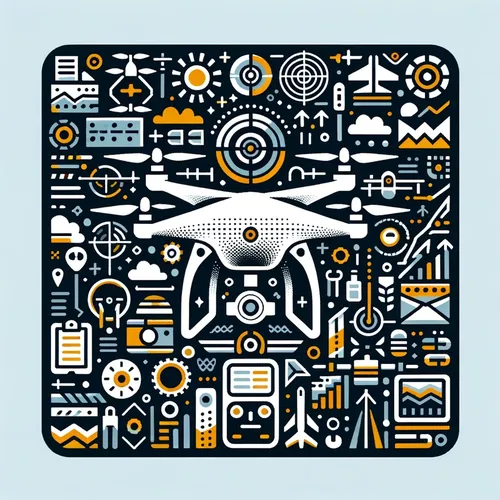Drone Pilots Soar High: Mastering the Skies, Chasing the Dough, and Navigating the Drama!
- Author
- Quiet. Please
- Published
- Fri 27 Jun 2025
- Episode Link
- https://www.spreaker.com/episode/drone-pilots-soar-high-mastering-the-skies-chasing-the-dough-and-navigating-the-drama--66769009
This is you Professional Drone Pilot: Flight Tips & Industry Updates podcast.
For professional drone pilots, staying ahead means mastering evolving flight techniques, maintaining a top-tier fleet, and staying on top of the industry’s rapid changes. Advanced maneuvers like autonomous waypoint navigation, dynamic tracking, and manual control in challenging wind conditions are increasingly in demand for aerial photography and inspection work. Seasoned operators recommend regularly calibrating drone sensors, updating firmware, and conducting preflight checks to minimize downtime and ensure equipment reliability. The drone maintenance service market is growing robustly, projected at a compound annual rate of over five percent through 2033, driven by innovations like artificial intelligence-powered predictive maintenance which helps reduce service costs and extends aircraft lifespan.
Business opportunities for skilled pilots remain strong across construction site surveying, real estate marketing, infrastructure inspection, and precision agriculture. Drone-as-a-service platforms are expanding, enabling operators to offer turnkey solutions and recurring revenue models rather than simple project-based work. As of 2025, regulations and licensing continue to evolve, with all commercial pilots in the United States required to maintain an FAA remote pilot certificate, complete recurrent training every two years, and ensure their aircraft are registered and compliant with remote identification standards. For those performing advanced operations, such as flying near airports or over bystanders, additional testing and practical flight reviews are now standard.
Client management and pricing strategies are shifting as clients become more drone-aware and demand value-added services. Successful pilots emphasize transparent quoting, clear communication of deliverables, and flexible contract terms. Monitoring flight conditions remains critical: real-time weather apps and historical pattern analysis help operators plan safe, efficient missions, particularly as extreme weather events become more frequent.
Several newsworthy items impact the 2025 landscape. The FAA recently updated remote identification enforcement deadlines, affecting all commercial flights in the US. Major insurers are rolling out usage-based drone liability policies tailored to flight hours and mission profiles. Meanwhile, widespread adoption of DaaS models is changing how pilots approach long-term client relationships, with more operators bundling data processing and analytics alongside flight services.
The future holds promise as drone autonomy and artificial intelligence further reduce pilot workload and create new business models, but ongoing compliance and technical skill remain essential. Practical action items for today’s professionals include scheduling recurrent training, auditing equipment maintenance schedules, exploring niche markets like infrastructure inspection, and reviewing insurance policies for latest coverage options. By combining operational excellence with business adaptability, professional drone pilots can continue to thrive as the sector matures.
For more http://www.quietplease.ai
Get the best deals https://amzn.to/3ODvOta
